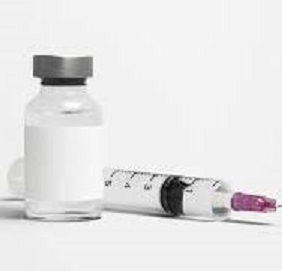
![]() Anita MgbakorMaternal and Neonatal CareAugust 13, 2025
Anita MgbakorMaternal and Neonatal CareAugust 13, 2025
Many pregnant women do not know that a simple blood group difference between mother and baby can lead to devastating outcomes such as miscarriage, stillbirth, or new-born complications.
This condition is known as Rh incompatibility, and it affects thousands of families every year, especially when left unmanaged.
85% of people are Rhesus (Rh) positive, while only 15% are Rh negative. In Nigeria, studies show the Rh-negative rate is between 0.8% and 4.5%, but even this small percentage carries major risks.
When an Rh-negative woman is pregnant with an Rh-positive baby and doesn’t get the right medical support, her immune system can attack and destroy the baby’s red blood cells.
A recent study involving 6,106 pregnant women found that 4.5% were Rh-negative, with some developing antibodies mid-pregnancy, resulting in new-borns requiring blood transfusions.
Another study linked Rh incompatibility to seven stillbirths out of 141 Rh-negative women, a 5% stillbirth rate that could have been avoided.
So why does this continue to happen? Three major challenges contribute to the problem: low awareness, difficulty accessing RhoGam, and high cost.

RhoGam is an injection given to Rh-negative women to help prevent their bodies from making antibodies against Rh-positive blood.
Early in pregnancy, your doctor will usually carry out a routine test to check your blood type and Rh status. If you are Rh-negative, your blood will also be checked for Rh antibodies.
These antibodies are special proteins made by your immune system when it detects something foreign, such as Rh-positive blood. If antibodies are present, it means your body has already been exposed, possibly through:
● a previous pregnancy with an Rh-positive baby
● a miscarriage, abortion, or stillbirth
● a blood transfusion with Rh-positive blood
If you are Rh negative and your partner is Rh positive, your baby may inherit the Rh-positive factor. This makes antibody screening an essential part of prenatal care.
You may need to repeat this test at different stages of your pregnancy to track antibody levels. High levels may indicate a greater risk of complications for your baby.
Once sensitized, a mother’s immune system remembers the baby’s Rh-positive red blood cells as threats, even in future pregnancies, leading to a condition called Hemolytic Disease of the Newborn (HDN).
This condition affects between 3 and 8 out of every 100,000 patients each year. Before the introduction of anti-D prophylaxis, it contributed to pregnancy loss in about 1% of all pregnancies, leading to complications like jaundice (hyperbilirubinemia), hydrops fetalis, and stillbirths.

If given at the right time, RhoGam injection helps prevent this sensitization and protects future pregnancies from complications such as:
● Severe new-born jaundice
● Fetal anaemia
● Brain damage
● Stillbirth
RhoGam is preventive, not curative. If antibodies are already present, RhoGam won’t be effective. RhoGam works best as a preventative measure. It can’t reverse things once your body has already made Rh antibodies.

To protect yourself and your baby, here’s a simple pregnancy timeline tailored for Nigerian women:
1. Booking Visit (First Trimester)
● Get tested for blood group and Rh factor.
● If Rh-negative, your doctor will also screen for Rh antibodies.
2. Second Trimester (18–24 Weeks)
● Repeat antibody screening.
● If it still shows antibody-negative, prepare for the first RhoGam shot.
3. Third Trimester (26–28 Weeks)
● Receive first RhoGam injection to prevent sensitization.
● Delivery
● If your new-born turns out to be Rh-positive, your doctor will recommend a follow-up
RhoGam shot within three days after delivery to protect future
4. Special Cases
RhoGam injection may be given earlier or more than once if you:
● Experience bleeding
● Have a miscarriage or abortion
● Undergo amniocentesis or CVS
● Have abdominal trauma or ectopic pregnancy

The cost of RhoGam in Nigeria can vary widely depending on your location, the type of healthcare facility, and market conditions.
Generally, RhoGam is considered expensive for the average Nigerian family, especially because it is not routinely provided for free in most public hospitals.
For this reason, it is important for Rh negative pregnant women to:
● Discuss cost and availability with their healthcare provider early in pregnancy
● Begin making financial plans ahead of time if RhoGam is needed
● Ask whether the hospital can help source it when the time comes
Based on recent findings, the price of RhoGam injection has increased significantly in some parts of Nigeria. For example, in Ibadan, several pregnant women reported paying between ₦70,000 and ₦100,000 for the injection. This is a sharp contrast to older estimates ranging from ₦12,000 to ₦28,000 some years ago.
Due to inflation, supply issues, and importation challenges, prices in urban areas like Lagos and Abuja are also expected to be in the ₦60,000–₦90,000 range.
In rural areas, RhoGam injection may be even harder to find, often requiring families to buy it through third-party vendors at a premium or travel to major cities.

● Budget early and spread the cost over 3–6 months
● Ask your hospital if they can help source affordable alternatives
● Explore community health centres with pharmacy support
Note: RhoGam is not currently covered under the National Health Insurance Scheme (NHIS).

FACT: Every Rh-negative woman carrying a potential Rh-positive baby needs RhoGam injection, even in a first pregnancy.
FACT: RhoGam doesn’t affect the baby. It protects future pregnancies from complications.
FACT: Rh sensitization happens silently. If you don& carry out the test, you won’t know until it’s too late.
FACT: It is given both before and after birth to protect your baby now and in the future.
Availability can be a challenge, especially in rural clinics. Here’s what to do:
● Ask your antenatal clinic early about sourcing
● Check large pharmacies
● Explore local teaching hospitals like UCH Ibadan, LUTH Lagos, or ABUTH Zaria
● Avoid buying RhoGam from unverified online platforms

1. Is RhoGam safe during pregnancy?
Yes. It’s been used safely worldwide for decades and prevents harmful antibodies from forming.
2. Will I need it in future pregnancies?
Yes. If your partner is Rh-positive and you remain Rh-negative
3. What if my partner is Rh-negative too?
You won’t need RhoGam, as your baby will also be Rh-negative,no risk of incompatibility.
4. Can I get it after a miscarriage or abortion?
Yes. This is one of the most critical times to receive RhoGam, ideally within 72 hours.
5. What if I miss my dose?
Speak to a doctor immediately as missing a dose could increase the risk of sensitization, especially in future pregnancies.
Rh incompatibility is serious, but preventable. RhoGam remains the safest and most effective way to protect both mother and baby. But access and awareness still pose a major challenge in Nigeria.
If you’re Rh-negative, get tested early, budget for your injections, and don’t miss your antenatal visits.
By understanding your Rh status, taking timely action, and advocating for better access to RhoGam, you can protect not just this pregnancy, but every pregnancy to come.
No woman should lose a child to something as preventable as Rh incompatibility. Awareness is key.
References
1. Eze, N. U., Maduka, I. C.et.,all (2012). The prevalence of Rhesus negativity among pregnant women in Enugu, South Eastern Nigeria. Nigerian Journal of Clinical Practice, 15(4), 400–402.
Sodiq, A. A., Yusuf, M. A., et.al (2018). Rhesus Incompatibility in Pregnancy: Knowledge, Attitude and Practice of Antenatal Attendees in a rural Nigerian community. African Journal of Family Medicine, 1(1), 1–7.
Ozor, I. I., Asinobi, O. M., et.al (2023). The knowledge and practice of rhesus (Rh) incompatibility among pregnant women attending antenatal clinics in a tertiary health facility in Nigeria. The Pan African Medical Journal, 43, Article 28.
ScienceDirect. (n.d.). Blood Group – Rh. In Topics in Biochemistry, Genetics and Molecular Biology. Retrieved July 4, 2025,
Mohammed, Y. U., Nwaeze, O., et.al, Knowledge, attitude and practice of rhesus negative pregnant women in a tertiary health facility in Nigeria. Journal of Family Medicine and Primary Care, 10(11), 4085–4091.
American Academy of Paediatrics. (2001). Hyperbilirubinemia in the new-born infant 35 or more weeks of gestation: Clinical practice guideline. JAMA Paediatrics, 108(3), 769–774.
NutritionFebruary 5, 2025
MedicationFebruary 5, 2025








